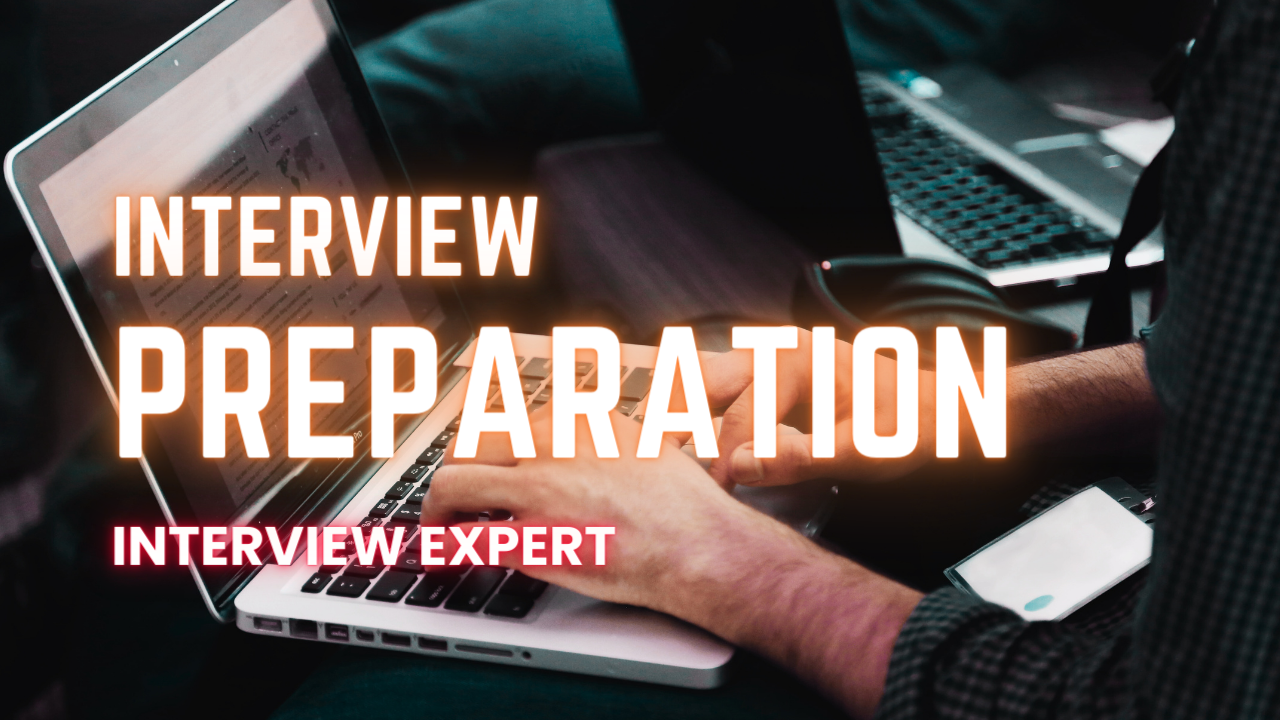
The landscape of job interviews has transformed significantly in recent years, influenced by technological advancements, changing organizational dynamics, and an increased emphasis on diversity and inclusion. This blog explores contemporary job interview methods, shedding light on innovative approaches that organizations adopt to identify and assess the right talent. From traditional face-to-face interviews to virtual and competency-based assessments, this blog aims to provide a comprehensive overview of the evolving trends in job interviews, highlighting their advantages, challenges, and potential impact on the hiring process.
The traditional job interview, characterized by in-person meetings and standardized questions, has undergone a paradigm shift in response to the demands of the modern workforce. Organizations are now leveraging various methods to enhance the accuracy and fairness of talent assessments. This blog examines the contemporary job interview landscape, encompassing both established and emerging approaches.
Contemporary Interview Methods:
Competency-Based Interviews:
Similar to behavioral interviews, competency-based interviews delve into specific skills and abilities required for the job. However, they often incorporate situational and hypothetical scenarios to assess a candidate’s problem-solving and decision-making skills. Competency-based interviews focus on assessing a candidate’s specific skills, behaviors, and attributes relevant to the job. This method shifts the emphasis from hypothetical questions to real-life scenarios, providing a more accurate representation of a candidate’s capabilities. The blog delves into the design and implementation of competency-based interviews and discusses their role in predicting job performance.
Video Interviews:
With advancements in technology, video interviews have become increasingly popular. Whether conducted live or through pre-recorded sessions, they offer convenience, save time and resources, and allow for remote candidate evaluations. With the rise of remote work and globalized talent pools, virtual interviews have become increasingly prevalent. Video conferencing platforms facilitate initial screenings and even entire interview processes, allowing candidates and hiring managers to connect from anywhere in the world. This section explores the benefits and challenges associated with virtual interviews, such as increased accessibility and potential technical difficulties.
Video job interviews have become an integral part of the modern recruitment process, especially in the context of remote work and globalized talent pools. This blog explores the evolution, advantages, challenges, and best practices associated with video job interviews. From technology considerations to candidate experience and assessment accuracy, this blog provides a comprehensive overview of the dynamics shaping the use of video interviews in today’s competitive job market.
The advent of technology has transformed the traditional job interview, with video interviews emerging as a popular and convenient alternative. This blog aims to examine the factors contributing to the rise of video job interviews, exploring how organizations and candidates alike are adapting to this virtual gateway to employment.
The Evolution of Video Job Interviews:
Video job interviews have evolved from simple webcam conversations to sophisticated virtual platforms. This section delves into the history of video interviews, from their early adoption as a cost-effective solution to the contemporary use of advanced technologies for seamless remote interactions.
Advantages of Video Job Interviews:
Video job interviews offer numerous advantages for both employers and candidates. This section explores the benefits, including:
Challenges and Considerations:
While video job interviews offer numerous benefits, they also present challenges. This section discusses common issues such as technical difficulties, the potential for bias, and the need for a reliable internet connection. Additionally, it addresses the importance of providing a positive candidate experience and ensuring fairness in the virtual hiring process.
Technology Considerations:
Choosing the right technology is critical for the success of video interviews. This section explores various video conferencing platforms, their features, and considerations for ensuring a smooth and secure interview process. The discussion also covers the role of artificial intelligence in video interviews, including automated candidate assessments and analytics.
Candidate Experience in Video Job Interviews:
Ensuring a positive candidate experience is crucial for attracting top talent. This section explores best practices for conducting video interviews, including clear communication, providing technical support, and establishing a professional virtual environment. It also discusses the importance of maintaining a human connection in the absence of face-to-face interactions.
Assessing Candidate Competencies:
Effectively assessing candidate competencies in a virtual setting is essential for making informed hiring decisions. This section examines strategies for evaluating skills, cultural fit, and other relevant criteria through video interviews. It also discusses the role of competency-based questions and interactive assessments in gauging a candidate’s suitability for a role.
Future Trends and Implications:
As technology continues to advance, video job interviews will likely undergo further transformations. This section explores potential future trends, such as the integration of virtual reality, augmented reality, and enhanced AI capabilities in the interview process. It also discusses the implications of these advancements for recruiters, candidates, and the overall recruitment landscape.
Conclusion:
Video job interviews have become an integral and transformative aspect of the hiring process. While they offer unprecedented advantages in terms of accessibility, efficiency, and flexibility, addressing challenges and prioritizing a positive candidate experience are essential for their continued success. As organizations embrace the opportunities presented by virtual interviews, staying attuned to evolving technologies and best practices will be key in navigating the virtual gateway to employment in the years to come.
Panel Interviews:
Involving multiple interviewers from different departments or levels within the organization, panel interviews provide a more comprehensive assessment of a candidate’s compatibility with the team and the organization’s overall culture. Panel interviews, involving multiple interviewers assessing a candidate simultaneously, have become a prominent and valuable component of contemporary hiring practices. This blog explores the dynamics, advantages, challenges, and best practices associated with panel interviews. From the diverse perspectives they bring to the evaluation process to their impact on fairness and reliability, panel interviews play a crucial role in shaping the modern recruitment landscape.
Panel interviews represent a departure from the traditional one-on-one interview format, introducing a collaborative and multi-perspective approach to candidate assessment. This blog aims to investigate the rationale behind panel interviews, examining how organizations leverage this method to enhance their hiring processes.
The Role of Panel Interviews in Modern Hiring:
Panel interviews serve multiple purposes in the hiring process. This section discusses their role in:
Advantages of Panel Interviews:
Panel interviews offer a range of advantages for both employers and candidates. This section explores the benefits, including:
Challenges and Considerations:
While panel interviews offer numerous advantages, they are not without challenges. This section discusses common issues such as:
Best Practices for Conducting Panel Interviews:
To maximize the effectiveness of panel interviews, organizations should adhere to best practices. This section explores recommendations for:
Fostering Diversity and Inclusion:
One of the primary advantages of panel interviews is their potential to foster diversity and inclusion. This section explores how diverse panels contribute to fairer assessments and discusses strategies for ensuring inclusivity in the selection of panel members.
Conclusion:
Panel interviews represent a powerful tool in the contemporary hiring toolkit, offering a multi-faceted approach to candidate assessment. While challenges exist, the benefits of diverse perspectives, enhanced objectivity, and a comprehensive evaluation process position panel interviews as a valuable strategy for organizations seeking to make informed and fair hiring decisions. As the workforce continues to evolve, panel interviews will likely remain a cornerstone in the pursuit of diverse, talented, and well-suited candidates in today’s competitive job market.
Top of Form
Bottom of Form
Emerging Interview Innovations:
Artificial Intelligence in Interviews:
AI-driven tools, such as chatbots and natural language processing algorithms, are being utilized to conduct initial screening interviews. These innovations aim to streamline the hiring process, reduce bias, and provide data-driven insights into candidate suitability. The integration of artificial intelligence (AI) in job interviews is a cutting-edge development that promises increased efficiency and objectivity. AI tools, including natural language processing and facial recognition, can analyze candidate responses and non-verbal cues, providing additional data points for evaluation. The ethical considerations and potential biases associated with AI in interviews are also discussed. The integration of Artificial Intelligence (AI) in job interviews is a transformative trend in contemporary recruitment practices. This blog examines the evolving landscape of AI-driven job interviews, exploring the opportunities, challenges, and ethical considerations associated with the use of AI technologies. From automated candidate assessments to facial recognition algorithms, this blog aims to provide a comprehensive overview of the impact and implications of AI in the hiring process.
The advent of AI has ushered in a new era in talent acquisition, with organizations increasingly incorporating AI technologies into their job interview processes. This blog delves into the motivations behind the adoption of AI in job interviews and explores the potential benefits and concerns associated with these technological advancements.
AI Technologies in Job Interviews:
AI technologies play a multifaceted role in job interviews, offering various tools to streamline and enhance the recruitment process. This section discusses key AI applications, including:
Advantages of AI in Job Interviews:
The integration of AI in job interviews offers numerous advantages for both employers and candidates. This section explores the benefits, including:
Challenges and Ethical Considerations:
While AI in job interviews presents significant advantages, it also raises ethical concerns and challenges. This section discusses:
Mitigating Bias and Ensuring Fairness:
Addressing bias in AI systems is crucial for maintaining fairness and equity in the hiring process. This section explores strategies for mitigating bias, including:
The Human Element in AI-Driven Interviews:
While AI technologies bring efficiency and objectivity, the human touch remains essential in the hiring process. This section emphasizes the importance of:
Future Directions and Recommendations:
As AI technologies continue to advance, the future of job interviews is likely to see further integration and refinement. This section explores potential future trends and offers recommendations for organizations to navigate the evolving landscape responsibly.
Conclusion:
AI’s role in job interviews represents a significant evolution in the recruitment process, offering both opportunities and challenges. Striking a balance between efficiency, objectivity, and ethical considerations is crucial for harnessing the full potential of AI while upholding fairness and inclusivity in talent acquisition. As organizations continue to explore and adopt AI-driven interview methods, a thoughtful and ethical approach will be essential in shaping the future of hiring processes.
Virtual Reality (VR) Interviews:
VR technology is being explored to create immersive interview experiences, simulating real-world job scenarios. This method allows employers to assess a candidate’s skills and reactions in a controlled and replicable environment.
Contemporary job interview methods reflect the evolving nature of the workforce and the technological advancements that shape recruitment processes. From virtual interviews to competency-based assessments and the integration of AI, organizations have a plethora of tools at their disposal. This blog underscores the importance of adapting interview methods to align with the evolving needs of both employers and candidates, ensuring a fair, effective, and insightful hiring process. As the landscape continues to evolve, staying abreast of these trends is crucial for organizations seeking to attract and retain top talent in today’s competitive job market.

10 hours ago, admin

6 days ago, admin

1 week ago, admin

10 hours ago, admin

6 days ago, admin

1 week ago, admin

2 weeks ago, admin

2 weeks ago, admin